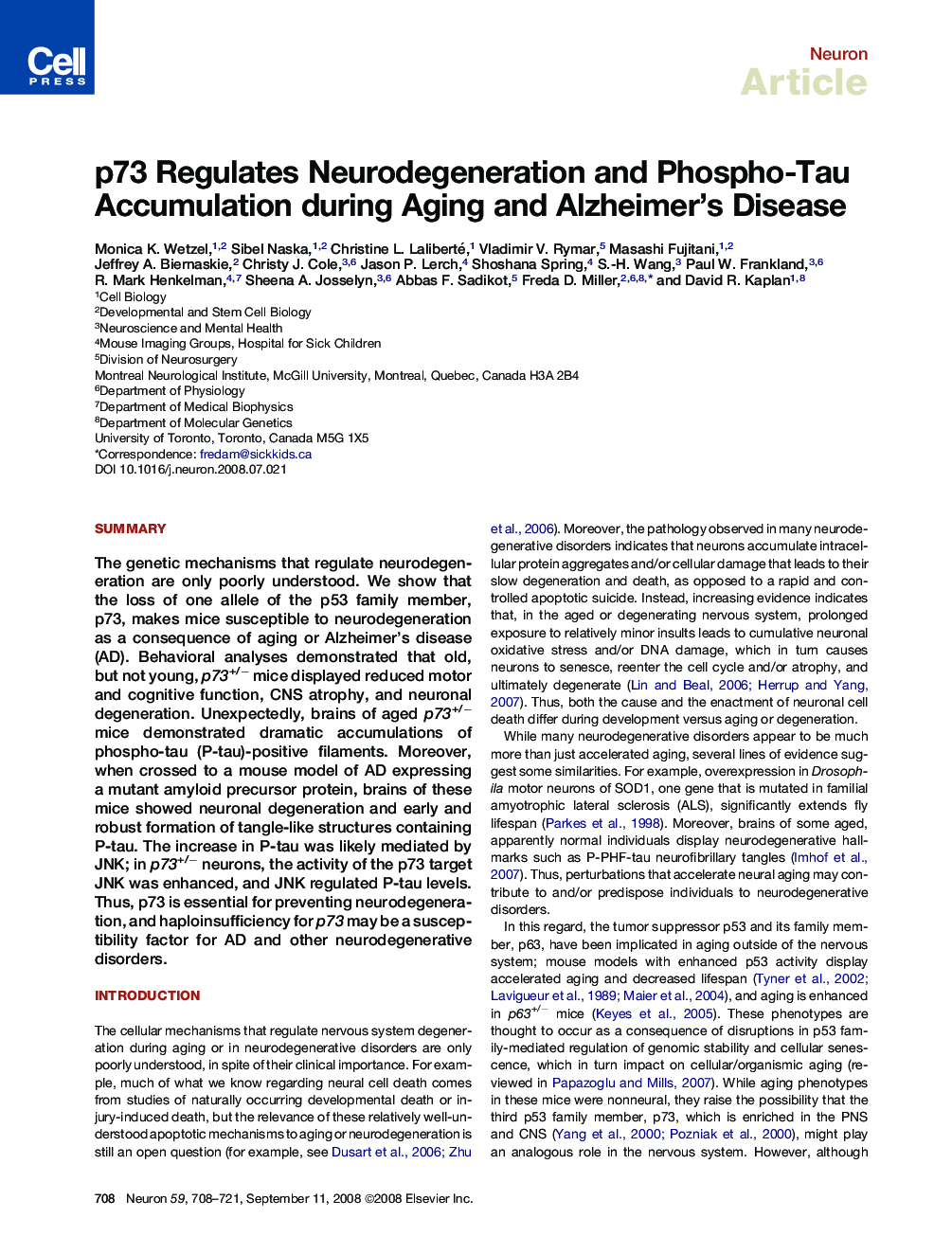| Article ID | Journal | Published Year | Pages | File Type |
|---|---|---|---|---|
| 4323133 | Neuron | 2008 | 14 Pages |
SummaryThe genetic mechanisms that regulate neurodegeneration are only poorly understood. We show that the loss of one allele of the p53 family member, p73, makes mice susceptible to neurodegeneration as a consequence of aging or Alzheimer's disease (AD). Behavioral analyses demonstrated that old, but not young, p73+/− mice displayed reduced motor and cognitive function, CNS atrophy, and neuronal degeneration. Unexpectedly, brains of aged p73+/− mice demonstrated dramatic accumulations of phospho-tau (P-tau)-positive filaments. Moreover, when crossed to a mouse model of AD expressing a mutant amyloid precursor protein, brains of these mice showed neuronal degeneration and early and robust formation of tangle-like structures containing P-tau. The increase in P-tau was likely mediated by JNK; in p73+/− neurons, the activity of the p73 target JNK was enhanced, and JNK regulated P-tau levels. Thus, p73 is essential for preventing neurodegeneration, and haploinsufficiency for p73 may be a susceptibility factor for AD and other neurodegenerative disorders.
